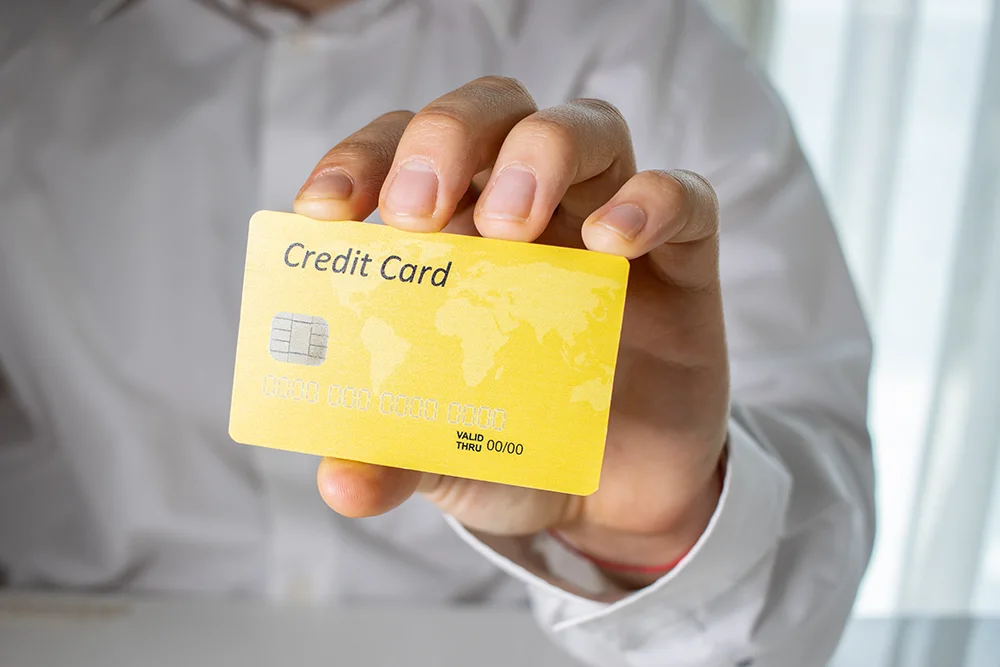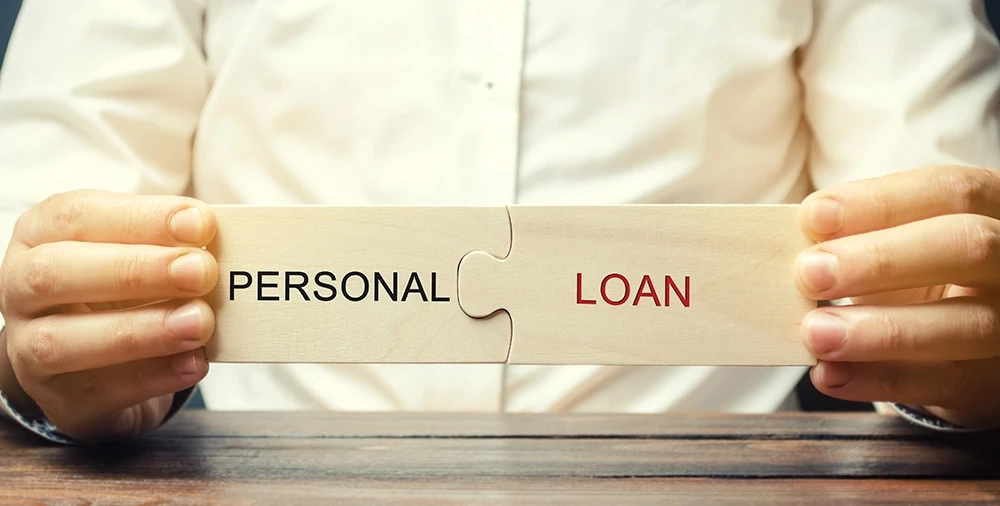Having a credit card can be useful when you're in a tight spot financially. It lets you access money when you need it, make purchases, and pay it back later on. Plus, credit cards are accepted almost everywhere, which gives you a lot of freedom with your spending—as long as you use them wisely.
If you're new to credit cards, keep reading to find out more about how they work and what benefits they can offer you.
What is a Credit Card and How Does It Work?
A credit card is a small, rectangular card made of plastic or metal, given out by banks or financial companies. It lets you borrow money to buy things from stores or online merchants that accept credit cards. When you use a credit card, you're expected to pay back what you borrowed, along with any interest and fees, either all at once by the due date or over time.
Besides the regular borrowing limit, some credit card issuers offer a separate cash line of credit. This means you can take out cash through ATMs, bank tellers, or special checks. However, cash advances usually come with different rules, like higher interest rates and no grace period compared to regular purchases.
Most businesses today accept credit cards, making them one of the most popular ways to pay. You can also use debit cards, which work differently. When you use a debit card, the money comes directly from your savings account. Generally, you won’t incur fees unless you fail to maintain your minimum balance. In contrast, with a credit card, you're borrowing money, and if you don’t pay it back by the next billing cycle, the issuer will charge you interest.
Benefits of Using a Credit Card
- Convenience: Using a credit card is super easy. Instead of carrying a lot of cash, you can just swipe your card to pay. There’s no need to count out coins or write checks—just hand over the card! Plus, you can connect your credit card to a digital wallet, so you can pay by simply scanning your phone without needing to carry the physical card.
- Improve Your Credit Score: Credit cards can also help you build a better credit score. If you use your card wisely—like paying off your balance on time and understanding the credit period—you can raise your CIBIL score. A good credit score is important for getting loans in the future without any hassle.
- Rewards Programs: Many credit cards offer rewards programs that let you earn points, cashback, or travel miles with every purchase. Some cards even come with extra benefits, like discounts on taxi rides and access to airport lounges or spas. These perks can help you save money while enjoying some nice experiences.
Credit Card Eligibility
Here are some factors that affect your credit card eligibility:
-
Credit Score
When you apply for a credit card, the card issuer looks at your credit score. This score is based on your credit history, how well you’ve made payments, and any missed payments you might have had. Generally, card issuers like to give credit cards to people with a good credit score, usually over 750.
However, if you don’t have any credit history, there are some entry-level credit cards available. These cards are often secured, meaning you need to put down a fixed deposit to get one. This can help you build your credit over time.
-
Age
To apply for a credit card, you need to be at least 21 years old and have a steady income, whether you're salaried or self-employed. This age requirement also applies if you want to be an additional cardholder. Most banks usually set a maximum age limit for applications, which can range from 40 to 65 years.
-
Income
Banks typically have a minimum income requirement to qualify for a credit card. You'll need to show proof of a regular income. The exact income needed can vary based on the type of credit card you're applying for. You can qualify if you're a salaried employee or self-employed running your own business.
-
Credit History
A good credit history shows that you know how to handle credit responsibly. It usually means you've been paying back your debts on time. When you have a higher credit score, it can make it easier for you to get a credit card. Having a solid credit history can really help when you're applying for loans or other types of credit in the future.
Documents Required to Apply for a Credit Card
When you want to apply for a credit card, the documents you need can vary depending on the credit card company. Here’s a simple list of what you might have to provide:
- A completed application form
- Passport-size photos
- Proof of identity
- Proof of address
- Recent salary slips
- Bank statements
- Form 16
- Annual income tax return (if needed)
Make sure to check with your credit card issuer for any specific requirements they may have.
Important Credit Card Terms You Should Know
When you are getting started with credit cards, it's important to be aware of some terms such as:
-
Borrowing Limit
Your borrowing limit is the maximum amount you can spend on your credit card, set by the card issuer. This limit depends on several factors, including your income, credit score, payment history, and how long you’ve been with the bank. If you have a good repayment record, banks might even increase your limit over time.
-
Fees and Additional Charges
Credit card companies often charge an annual fee for the services they provide. This fee can range from a couple of hundred to several thousand rupees, depending on the card’s benefits. Some issuers might waive this fee for the first year, while others may offer cards with no fees for life.
-
Billing Cycle (Statement Period)
The billing cycle is the time between the end of one statement and the beginning of the next. Most banks operate on a 30-day cycle, so it’s essential to keep track of these dates. This way, you can plan your expenses and manage your finances better.
-
Interest Rates
Interest rates on credit cards can vary quite a bit. The rate for a standard purchase might be higher than for an instalment plan (EMI), while cash advances or over-limit charges typically come with different rates. Before you choose a card, make sure you understand how these charges work for various transactions.
-
Due Date
The due date is the set day each month when your credit card payment is due. This includes any EMIs or outstanding amounts. It’s a good idea to pay your bill before the due date to avoid late fees and high-interest rates on unpaid balances.
-
Grace Period
The grace period is the time between when your statement is issued and when your payment is due. This can last from 14 to 21 days, depending on the credit card issuer. The best part is that if you pay off your balance during this time, you won’t be charged interest on your outstanding amount. Keeping this in mind can help you save money.
-
Annual Percentage Rate (APR)
The APR is the yearly interest rate charged if you don’t pay off your credit card balance in full by the due date. If you leave some balance unpaid, interest will be charged monthly on that amount. To find out your monthly interest, just divide the APR by 12.
GET the YES BANK Freo RuPay Credit Card
Looking for a credit card that gives you flexibility and convenience? With the YES BANK Freo RuPay Credit Card, you get the power of UPI combined with the benefits of a credit card. You’ll receive both a virtual and physical card, along with 50 days of interest-free credit—so you can make purchases worry-free.
Are you eligible for the YES BANK Freo Credit Card?
- Must be a YES Bank credit card holder
- Be between 21 and 60 years old
- Be salaried or self-employed
- Have a minimum net salary of INR 25,000 per month or an Income Tax Return of INR 5 lakh
Explore YES BANK Freo RuPay Credit Card












